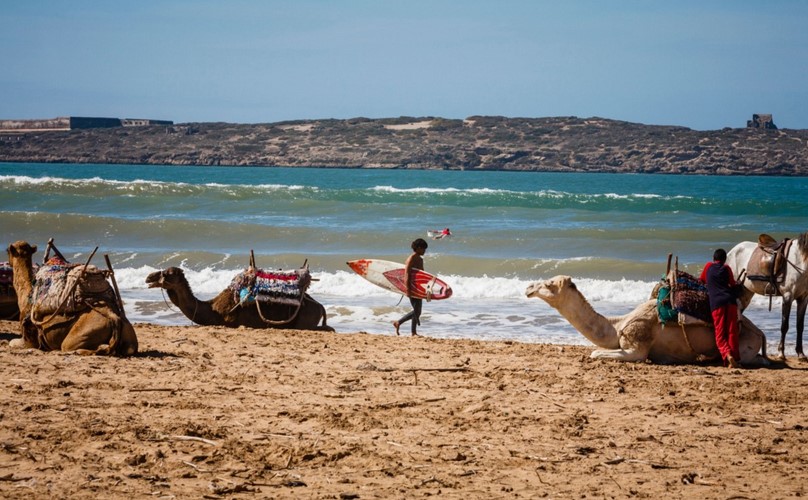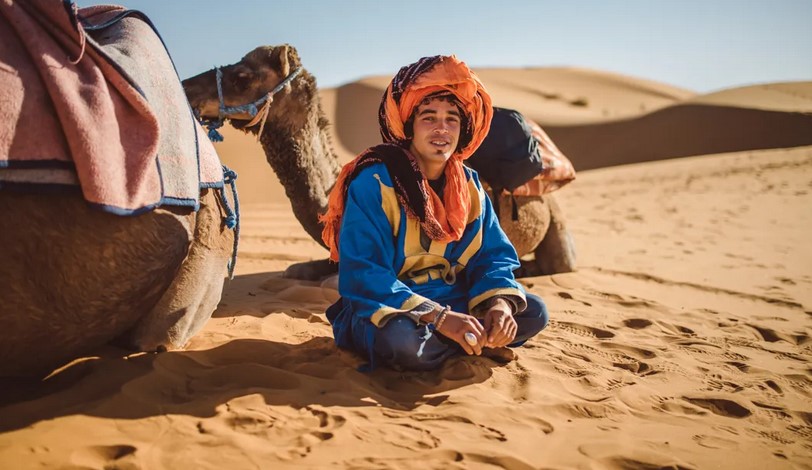
Is it Easy to Travel in Morocco?
admin
- 0
You may be wondering if it’s easy to travel in Morocco. There are several options for transportation, including air – conditioned buses, taxis, and Air -conditioned buses. If you’re feeling adventurous, you can also try driving yourself. This will help you get around the medinas without getting lost.
A lot of people have this idea that Morocco is a difficult country to travel in, but that simply isn’t the case. Morocco has a great train and bus system that can easily get you from one city to another. It’s also very easy to hitchhike around the country using buses and trains. When it comes to food, Moroccans love eating, and you’ll almost always be invited into a Moroccan family home to eat some couscous or tagine with them. Of course there is more to Morocco than its transportation and cuisine. Morocco has beautiful landscapes with cities like Fes and Marrakech sitting at the centre of it all; towering high above the other cities below like magnificent castles. There are many things here for everyone, from ancient historical sites rich with culture, extensive hiking trails that snake through lush green forests filled with wildlife, beautiful deserts rich with history, swimming pools nestled into the cityscape even the world’s largest open desert solar plant near the Sahara Desert!

Taxis
Table of Contents
ToggleTaxis are one of the most popular modes of transport in Morocco. The average cost of a ride is 25 Dhs- Mad, or about 3 dollars. You can hail one at the kerb or hire one from a designated rank, which are usually well- marked. Taxis are typically equipped with meters, but you should always negotiate with the driver to find out if the meter is being used.
Taxis in Morocco are cheap, even by European standards. Moreover, they’re much more comfortable than public transport, which is overcrowded and often lacking in air conditioning. However, you’ll need to learn the basics of dealing with a taxi driver before you hire one.
Air-conditioned buses
Morocco has a well-established bus network that connects the country’s major cities. There are air -conditioned buses that run throughout the country with TVs and comfortable seating. There are several bus companies that provide air-conditioned buses. These buses are usually more expensive than regular buses, but they are also a great way to meet locals and see the country at a slower pace. Tickets are available for purchase at bus stations all over the country.
Most towns and cities in Morocco have a main bus terminal, or gare routiere. This terminal is usually a small patch of ground, located a short distance from the town center. You can find petits taxis parked near the bus terminals. Most bus companies operate out of their offices, such as CTM and Supratours, while others operate out of the train station or their own office. The main bus terminals can be intimidating, but most companies have a ticket counter and display departure times in their windows.
Driving in Morocco
While driving in Morocco, drivers should be mindful of the local traffic laws, which can vary significantly depending on where you are. Drivers should slow down before turning on a narrow road, signal their turns before proceeding, and obey the speed limit when possible. In addition, you should wear a seat belt when driving in Morocco. Stop signs are not always easy to spot and are often situated near the ground, so you should slow down to avoid running into them. You should also be aware of the fact that many road signs are in French or Arabic, so it is a good idea to learn at least a little of the languages before driving in Morocco.
Morocco is a fast-developing country, but many locals are still living the traditional way. Therefore, road traffic in Morocco is often shared with slow-moving trucks, small motorbikes, bicycles, oxen pulling carts, and pedestrians. Hence, you should slow down considerably compared to driving in your home country.
Getting around the medinas
If you want to get around the medinas in Morocco, the best way is on foot. Make sure to bring maps of the medina with you, and ask your hotel or riad to provide you with some. Alternatively, you can take a taxi. These are usually metered and carry no more than three people.
You can also hire a bike. These are green alternative options. You can also hire a tricycle to get around the medinas. Rabat also has tricycles that take tourists to the most beautiful parts of the medina. And if you want to take it slow and enjoy the atmosphere, you can also hire a carriage. These can take you through the alleyways in the heart of the medinas and let you stroll more freely.

Getting around the country during Ramadan
If you’re visiting Morocco during Ramadan, you should prepare for a few things. First of all, don’t expect to find many restaurants or stores open during daylight hours. In fact, you won’t find many street food stalls either. Public transportation will still operate as usual, but you will have a hard time finding a taxi.
Moroccan trains have limited seating and may be overbooked. It’s a good idea to purchase your ticket ahead of time to guarantee a seat. Second class seats aren’t guaranteed, and you may have to stand in the aisle. Moroccan train tickets must be paid in cash and must be purchased at an authorized travel agent. You may also have to pay a supplement if you buy your ticket at the train station.
Morocco is a very accessible country to travel in. There’s a lot to see and do here, but the added ease of transportation makes it such that you can get almost anywhere you need. Plus, there are plenty of other options if you don’t want to take public transportation, and many different kinds of accommodations to choose from as well. So if you’re deciding where to travel next and are looking for a new place full of interesting sights and sounds, look no further than Morocco.


